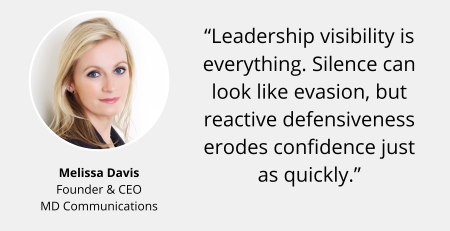If you work in PR then you may remember where you were when you heard communications agency Bell Pottinger had been expelled from its own industry body – the Public Relations and Communications Association (PRCA).
Together with ad giant Saatchi, the agency, founded by the still-living Tim (Lord) Bell, was the comms and marketing strategy that brought Margaret Thatcher to power, and then helped keep her there.
Whatever your politics, as a professional, you have deep respect for such successes. They are hard won.
Then there was the news about Bell Pottinger this week. The Guardian’s Nils Pratley put it pithily, noting that Bell Pottinger’s handling of its own public relations disaster has provided a textbook example of how not to manage a crisis.
The City PR outfit initially denied it had done anything wrong for South Africa’s Gupta family despite the facts suggesting a poisonous campaign, stoking racial division, had been run.
By the time chief executive James Henderson had resigned, a review by Herbert Smith Freehills had left the PRCA with the conclusion that Bell Pottinger’s behaviour was so bad that expulsion from the industry body was the only suitable penalty.
The agency made a fatal error when it accepted this particularly nasty mandate. Arrestingly, Tim Bell predicts its demise.
A few thoughts on where things started to go wrong.
- Deciding to accept a client or not could be the beginning or the end of your reputation. I know only too well that short-term cashflow is a consideration for any business. But if there are no alternatives to acting on a toxic account, should you still be in business?
- Some clients rule out others. Famously no-one acts for Pepsi and Coke. You can’t be a mercenary and in the British Army at the same time – other Bell P clients won’t like the racial hatred campaign. I don’t think the agency will be acting for, say Benetton (united colour of), any time soon.
- What were they thinking? This was just wrong.
- This affects all PRs. We all need to try extra hard to walk the talk of our values after an episode like this – stoking racial hatred for money is not what any PR or marketing person I know does, but professions and trades can’t ignore guilt by association.
- The damage is to the brand – mainly. The intern will probably work again, and even though his name is on the tin, Bell will likely still dine out on his Thatcher-era anecdotes.
- His awful Newsnight appearance. Tim Bell floundered in spectacular style on Newsnight, and listed companies will hesitate to link to his name. Would you accept media training from someone who lets their phone ring twice in an interview, then shows the caller ID to Kirsty Wark in an attempt to impress her?
- For goodness sake, prepare for what you know is true. My only ‘how to handle it better’ point. Bell sent an email expressing enthusiasm about this piece of work, which he had gone to South Africa to discuss. The BBC obtained it – on Newsnight, he seemed unprepared for this. Interviewees need to know what happened when it’s in their own outbox.
- Drip, drip, drip… a media crisis classic involves the release or search for new information. Bell provided that in the interview – who was on the phone? And the statements he made – emphatic – saying he advised against taking this client will be picked over. Other people, expected to carry the can if Bell insists he is blameless, may come back with their side and facts.
This was, in the round, a pretty distasteful episode. There’s a line of argument that comms advice is a bit like legal advice – that everyone deserves assistance in putting their case properly.
Perhaps, but this one crossed a line. The client wasn’t being briefed for a high-profile interview, but had asked for something nasty to be done. It came after a string of arguably questionable mandates (Pinochet, the Assad Foundation… I could go on).
In general, transparency and ethical demands are changing the corporate world, and PRs need to reflect that. Bell Pottinger looked – among other things – old fashioned this week, and not in a good way.












